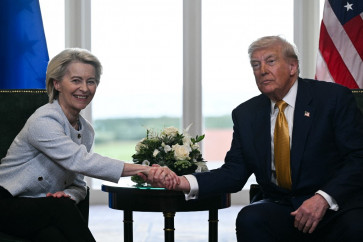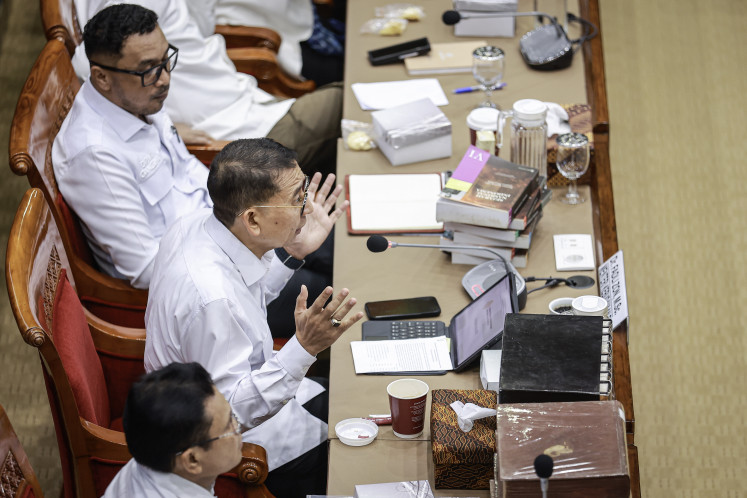Popular Reads
Top Results
Can't find what you're looking for?
View all search resultsPopular Reads
Top Results
Can't find what you're looking for?
View all search resultsFictitious tax invoices cause Rp 1.5t in state losses
The falsification of tax invoices to alter tax obligations is widely practiced in Indonesia and is estimated to have caused Rp 1
Change text size
Gift Premium Articles
to Anyone
T
he falsification of tax invoices to alter tax obligations is widely practiced in Indonesia and is estimated to have caused Rp 1.5 trillion (US$132.7 million) in state losses since 2008, according to the nation's tax office.
Yuli Kristiono, director of the intelligence and investigation division at the Finance Ministry's directorate general of taxation, announced on Monday that the latest scheme had been uncovered by the tax office and the National Police Criminal Investigation Directorate (Bareskrim).
As seen in previous tax crime cases, the suspect, who this time was identified only by the initial Z, allegedly sold tax invoices with fictitious business transactions to companies that would then manipulate and deflate their value-added tax payments.
'We estimate that there have been hundreds of similar cases since 2008, and all of them have caused state losses of around Rp 1.5 trillion,' Yuli said in a press briefing.
Z allegedly masterminded the fictitious tax invoice scheme carried out between 2003 and 2010, causing Rp 247.4 billion in state losses.
Z is alleged to have involved accomplices ' identified as Soleh, Eryanti and Tan Kim Boen ' who were arrested in 2010 and are being detained for further investigation.
His brother, identified only by the initial D, was also allegedly involved, however, remains at large.
Z and D allegedly established 11 bogus companies (PT SIC, PT IGP, PT GIK, PT BSB, PT KGMP, PT BIS, PT BUMP, PT CDU, PT MNJ, PT SPPS and PT PML) that issued the fictitious tax invoices.
'They then sold the invoices to companies that used them [the invoices] to manipulate their value-added tax payments,' Yuli explained.
If proven guilty, the suspects could face a sentence of five years and six months in prison and a Rp 494 billion fine. Meanwhile, companies that are found to have intentionally used fake tax invoices could face two or six years' imprisonment.
Tax office spokesperson Kismantoro Petrus said his office would launch a new system later this month that was expected to curb tax crimes that involve forged tax invoices.
Each tax invoice would be given a unique number so businesses would not be able to buy invoices from third parties.
'We will apply this system to several big firms this month, followed by several others later on,' Kismantoro said, adding that nationwide implementation of the system would take time because it was complicated. (koi)










